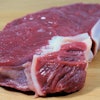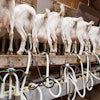
While the world is still facing labor shortages due to COVID-19, artificial intelligence (AI) and robotics continue to be a trending topic in the poultry industry. At the virtual Animal AgTech Innovation Summit, experts discussed whether the future of farming is hybrid.
“The big strength of artificial intelligence and automation of this is, we can repeat what humans can do in an automated consistent fashion and many times over than the humans can do,” said Heiner Lehr, CEO of Faromatics.
Robotic technology can help by freeing up workers to perform other tasks. For example, instead of a worker picking up deceased birds in a poultry house the robotic technology could.
Artificial intelligence can be used in poultry houses to improve overall efficiency by addressing welfare and health challenges. Many farms rely on pen and paper to record information, which can be time-consuming and prone to error. Using AI could create a faster, more accurate approach to data collection and analysis.
Lehr continued by sharing a few problems that could arise while solely relying on artificial intelligence in farms. While AI and robotics can perform tasks more quickly and consistently than human workers, translating these findings into actionable data for poultry farmers can be a challenge.
Digital technologies, like artificial intelligence, remote monitoring and machine learning, can help farmers analyze data to optimize the decision-making process.
Although these services are digital, some still require human interaction to translate its findings.
The future of cell cultured meat
To create cultured meat, real animal cells are grown in a stainless-steel tank known as bioreactor. This results in a product that closely resembles chicken, beef, pork and other meats.
When asked about cultured meat and automating farms, David Speller, founder and CEO of OPTIfarm questioned whether consumers will be fully on board.
“We must not forget we all purchase food with some degree of emotional choice,” said Speller at the virtual Animal AgTech Summit. “We don’t know what the true perception of cultured meat globally and what consumers take on that is.”
Some individuals may have a strong attachment to real meat, arguing that the cultured meat will not have the same taste or satisfaction.


















